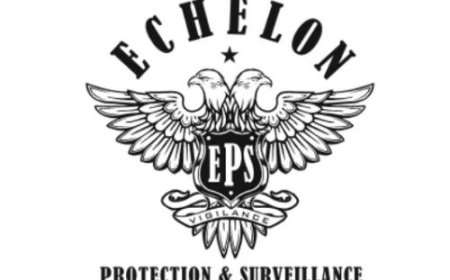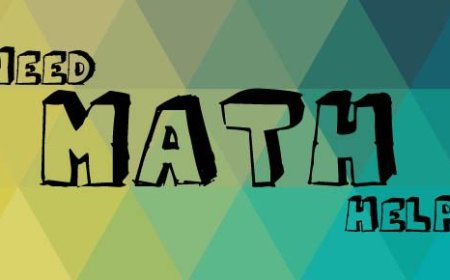Certified Internal Auditor Course: Your Path to Auditing Excellence
Boost your career with ISO Internal Auditor Training. Learn to conduct internal audits and improve management systems for better compliance

So, youre a government auditor, a performance evaluator, or maybe a compliance officer in a public institution, and youre thinking about taking your career to the next level. Youve probably heard whispers about the Certified Internal Auditor (CIA) designationhow its a game-changer, a golden ticket to credibility and global recognition. But whats the real deal? Why should you, with your already packed schedule and endless to-do list, consider diving into a CIA course? Let me walk you through it, and by the end, youll see why this might just be the smartest move you make this year.
Whats the CIA, and Why Should You Care?
The Certified Internal Auditor designation, offered by the Institute of Internal Auditors (IIA), is like the North Star for anyone serious about internal auditing. Its not just a fancy title to slap on your LinkedIn profileits proof youve got the skills, knowledge, and ethical grounding to tackle complex audits, ensure compliance, and drive organizational success. For folks like you, working in government or public institutions, the CIA aligns perfectly with the need for transparency, accountability, and adherence to global standards.
Why does it matter? Well, public sector auditing isnt exactly a walk in the park. Youre juggling regulations, stakeholder expectations, and the pressure to keep everything squeaky clean. The CIA equips you with tools to navigate this mazethink risk assessment, governance frameworks, and fraud detection, all wrapped in a globally recognized package. Plus, its a signal to your bosses (and future employers) that youre not just good at your jobyoure exceptional.
Heres the thing: pursuing the CIA isnt just about checking a box for your organizations internal requirements. Its about owning your expertise and standing out in a field where precision and trust are everything. Ever wonder what separates the auditors who get promoted from those who stay stuck? Its often that extra layer of credibility the CIA brings.
The Nuts and Bolts of the CIA Course
Lets get into the meat of it. The CIA certification involves passing three exams, each testing a different slice of auditing expertise. Part 1 covers the essentials of internal auditingthink governance, risk management, and control. Part 2 digs into the practice of internal auditing, like planning and executing audits. Part 3? Thats the big one, tackling business knowledge, financial management, and even IT systems. Sounds intense, right? It is, but its also manageable with the right approach.
Youll need a bachelors degree and at least two years of internal auditing experience (or a masters degree with one year of experience) to qualify. Dont have the experience yet? No sweatyou can take the exams and complete the requirement later. The IIA also offers study resources, from textbooks to online courses, to help you prep. Some folks go the self-study route, while others swear by structured courses from providers like Gleim, Surgent, or Hock International. These programs often include practice questions, study guides, and even mock exams to get you ready.
Why the CIA Fits Government Auditors Like a Glove
Now, lets talk about why the CIA is practically tailor-made for you. Government auditing isnt just about crunching numbersits about ensuring public funds are used wisely, regulations are followed, and risks are managed. The CIAs focus on governance, risk, and control aligns perfectly with the demands of public institutions. Whether youre evaluating performance in a federal agency or ensuring compliance in a state department, the skills you gain from the CIA make you a sharper, more effective auditor.
Take risk management, for example. In the public sector, risks arent just financialtheyre political, operational, even reputational. A poorly managed project could end up on the front page of the local paper, and nobody wants that. The CIA teaches you how to spot those risks early, assess them, and recommend fixes that keep things running smoothly. Its like having a superpower for preventing disasters before they happen.
The Challenges (Because Its Not All Smooth Sailing)
Lets keep it realpursuing the certified internal auditor course isnt a cakewalk. The exams are tough, and studying while working full-time can feel like juggling flaming torches. Part 3, with its broad scope, trips up even seasoned auditors. And if youre in a high-pressure government role, finding time to hit the books can seem impossible.
Heres where Ill throw in a mild contradiction: some people say the CIA is overrated, that experience trumps certifications. And sure, experience matters, but the CIA isnt just a piece of paperits a structured way to sharpen your skills and prove your worth. Think of it like a gym membership for your brain: you might already be fit, but the CIA pushes you to the next level.
How to Get Started Without Losing Your Mind
Ready to take the plunge? Heres a game plan to make the CIA journey less daunting:
-
Assess Your Starting Point: If youre already doing audits, youve got a head start. Review the IIAs eligibility requirements and map out your study timeline.
-
Choose Your Study Method: Self-study works if youre disciplined, but a course from Gleim or Surgent can provide structure. Many offer mobile apps, so you can study on your commute or during lunch breaks.
-
Break It Down: Tackle one exam part at a time. Start with Part 1its foundational and builds confidence.
-
Stay Balanced: Burnout is real. Schedule study sessions but leave room for lifewhether its a walk in the park or binge-watching your favorite show.
You know what? The first step is always the hardest. But once you commit, its like starting a new workout routinetough at first, but soon youre seeing results and wondering why you didnt start sooner.
A Little Inspiration for the Road Ahead
Picture this: its a crisp fall morning in 2025, and youre walking into your office with a shiny new CIA designation. Your colleagues respect you, your bosses trust you, and youve got the skills to tackle any audit with confidence. Thats not just a daydreamits what the CIA can do for you. Its not about being the best auditor in the room (though you might be); its about knowing youve got the tools to make a real impact.
Government auditing is a calling. Youre not just checking boxesyoure safeguarding public trust, ensuring resources are used wisely, and making government work better for everyone. The CIA is your partner in that mission, giving you the knowledge and credibility to shine.
Wrapping It Up
The Certified Internal Auditor course isnt just a credentialits a chance to level up your career, boost your confidence, and make a bigger impact in your organization. For government auditors, performance evaluators, and compliance officers, its a natural fit, aligning with the demands of public sector work and global auditing standards. Yes, its challenging, but the payoffhigher pay, global recognition, and the ability to tackle complex audits with easeis worth every late-night study session.


































